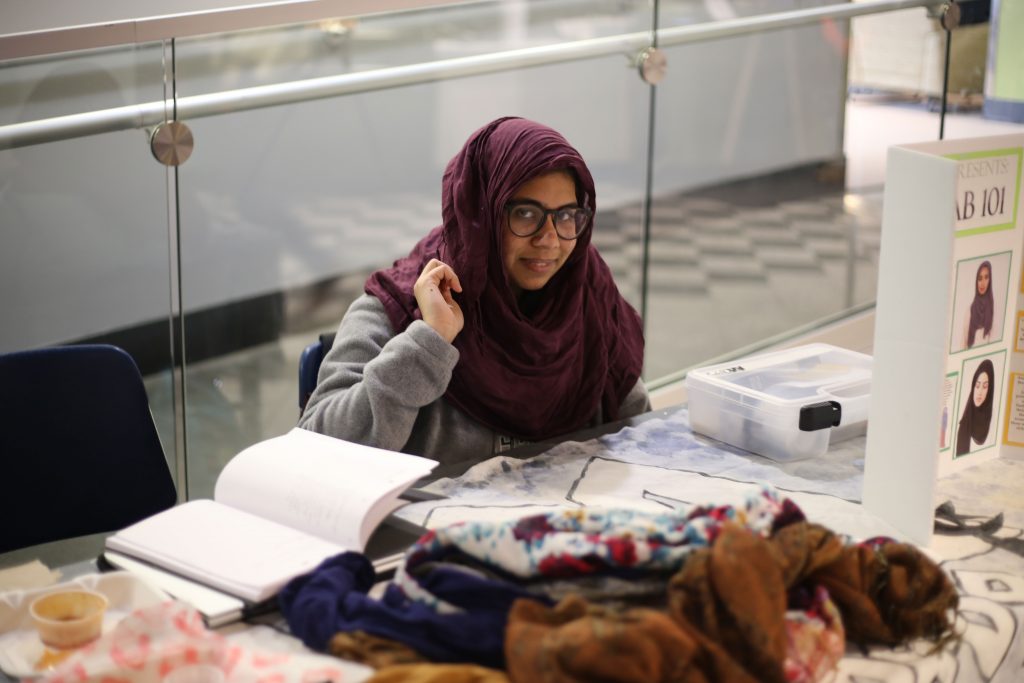
The hijab, a traditional veil or head covering worn by some Muslim women, is often seen but rarely discussed. World Hijab Day, held on Feb. 1, aimed to provide a venue for thoughtful conversation on the hijab’s importance and background.
The Muslim Student Association (MSA) tabled in the Marketplace on Thursday to give students a better idea of what the hijab means and represents, joining organizations from more than 140 countries worldwide. Hijabs were available at the tabling event for women to try on and take photos in.
Nazma Khan, a Muslim woman and Bangladeshi immigrant, established World Hijab Day in 2013 with the goal of fostering global religious tolerance. Khan, who moved to the Bronx when she was 11, experienced intolerance and misconceptions often associated with the hijab as the only hijabi in her middle school. She was taunted with names and labels such as “batman,” “ninja” and “terrorist.”
Maisha Ahmed, a sophomore majoring in psychology and a member of the MSA, said the goal of the tabling was for individuals to experience a day in the life while wearing the hijab. With this, the organization hoped those without knowledge about the hijab would become more comfortable with it, and those who had misconceptions could learn the facts.
The word hijab is derived from the Arabic word for modesty, and it became an aspect of Islam around 627 C.E.
“Modesty regarding actions and beliefs is a major principle in Islam,” Ahmed said. “It’s not just the physical covering, but how you act when you wear the hijab that matters.”
Today, wearing the hijab is optional for Muslim women, depending on their beliefs. Nadiya Al-Noor, a second-year graduate student studying student affairs administration and public administration and a member of the MSA, said many are surprised to hear it is as much a choice to uncover as it is to cover.
“Many misconceptions include the idea that women are forced to wear it, but the point is that Islam supports women’s right to choose,” Al-Noor said.
To raise awareness, women who chose to participate went about their normal day, but this time while wearing a hijab. Many were shocked to find out how often they were looked down upon and slandered. One woman said she was spit on while grocery shopping in the city of Binghamton.
Hannah Rockwood, an undeclared freshman, stopped by the table because she was interested in learning more about the hijab.
“The day doesn’t really hold any significance for me because I don’t wear the hijab or know much about it, but I have heard a lot of misconceptions about it,” Rockwood said. “I thought people were forced to wear it and I wasn’t sure if they ever took it off, even at home. I think it’s really good that people are working to get the truth out.”


